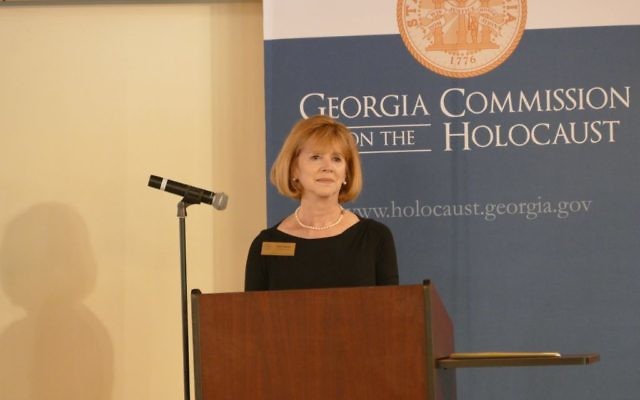Our View: Rare Unanimity on Holocaust Bill
Not one legislator voted against strengthening Georgia's Holocaust Commission and building a state memorial.

Here’s a score you won’t see during NCAA March Madness: 218-0.
That’s the combined result of voting in the Georgia Senate (54-0 on Feb. 20) and House (164-0 on March 12) on Senate Bill 356, Holocaust-related legislation introduced by Sen. Kay Kirkpatrick (R-East Cobb). We’re confident that Gov. Nathan Deal will sign the bill, making the final score 219-0.
This legislation fills less than 1½ double-spaced pages but has powerful potential in two areas.
The first is the Georgia Commission on the Holocaust. The measure ensures bipartisan involvement in the commission’s educational and commemorative efforts by doubling the number of legislators appointed to work with the group. Instead of one appointee by the speaker of the House and one by the president of the Senate, each chamber now will have two representatives, one from each party.

Those lawmakers now will be charged with “legislative oversight” of the commission instead of serving as “advisers.” We had concerns that the change might mean unnecessary interference in the commission’s operations, but instead we believe that it will ensure a deeper, more serious commitment to, and understanding of, what the commission does. There’s more to it than the Anne Frank exhibit in Sandy Springs and the annual commemoration at the state Capitol.
Kirkpatrick told us in early February that after Lt. Gov. Casey Cagle appointed her to the advisory role for the Senate, she proposed the change in the General Assembly’s involvement in the commission to broaden support for it and, she hoped, help it win increased funding.
An amendment to her bill when it came before the Senate Urban Affairs Committee will make the funding goal more likely: The legislation moves the commission from the Secretary of State’s Office to the Department of Community Affairs. That simple change in the chain of command means that instead of fighting for scraps in the secretary of state’s limited budget, the commission can vie for a slice of the tens of billions of dollars spent under the authority of the governor.
The second major action of S.B. 356 is to clear the way for the commission to design and “place in a prominent location” a Holocaust memorial, paid for with private money.
This provision caused some worries because it ignores the fact that Atlanta has the historically important, eternally impressive, privately built and maintained Memorial to the Six Million at Greenwood Cemetery. Kirkpatrick acknowledged not knowing about the 53-year-old memorial, but she meant no insult and joined Eternal-Life Hemshech for a tour of site.
The Memorial to the Six Million is of and for the Jewish community, however. Few outside our community know about it or are likely to stumble upon it in an isolated corner of Southwest Atlanta.
A memorial owned and maintained by the state in a prominent location close to the Capitol — perhaps a statue, perhaps an exhibit space — would be a daily reminder to people beyond the Jewish community that Georgia is determined to never forget. It also would reinforce the purpose and value of the late Benjamin Hirsch’s architectural masterpiece at Greenwood Cemetery.
AJT Publisher Michael Morris is a member of the Georgia Commission on the Holocaust but did not contribute to this editorial.



comments